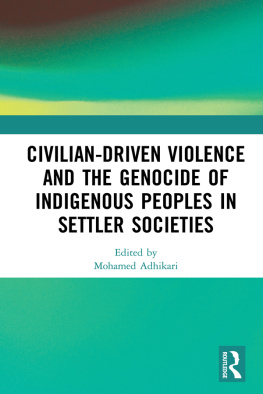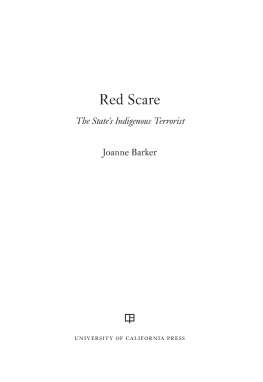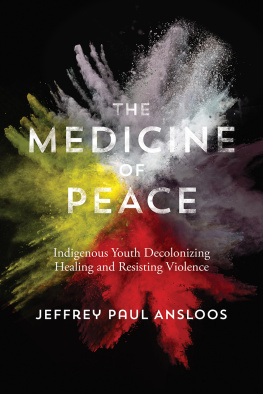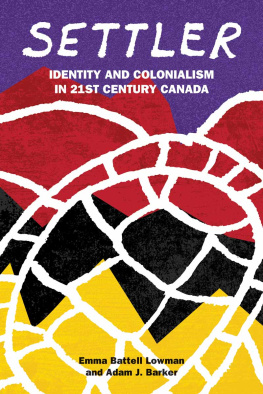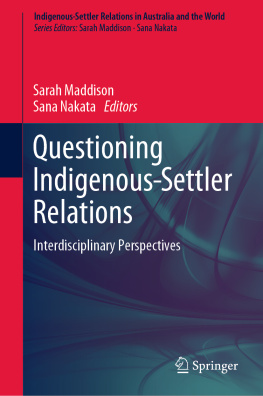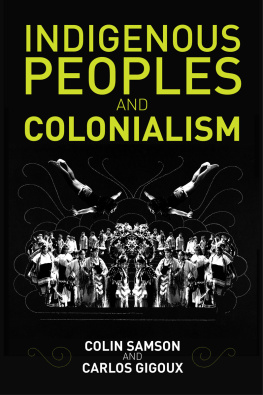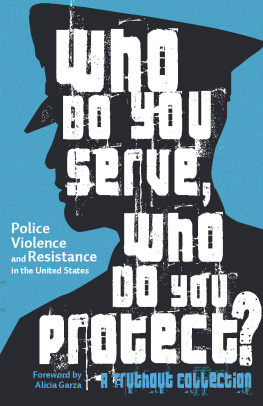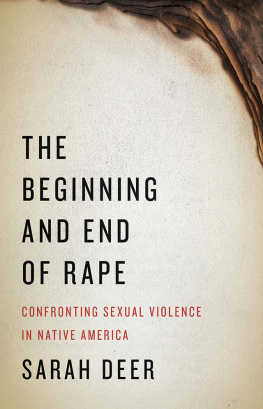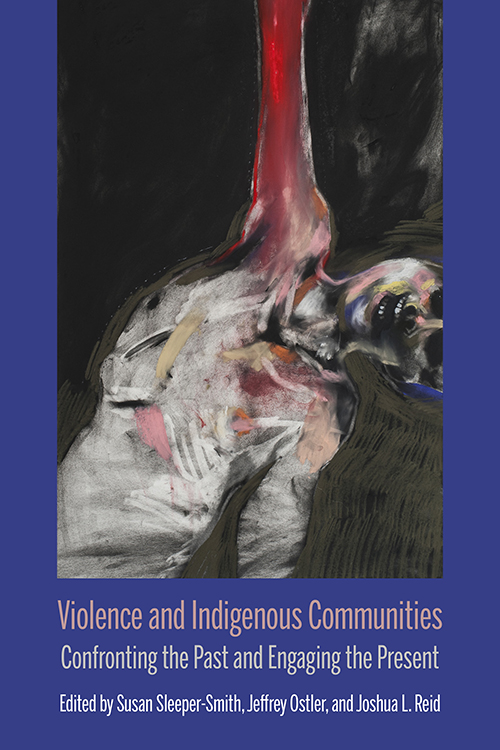
Violence and Indigenous Communities
Critical Insurgencies
A Book Series of the Critical Ethnic Studies Association
Series Editors: Jodi A. Byrd and Michelle M. Wright
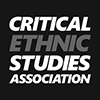
Critical Insurgencies features activists and scholars, as well as artists and other media makers, who forge new theoretical and political practices that unsettle the nation-state, neoliberalism, carcerality, settler colonialism, Western hegemony, legacies of slavery, colonial racial formations, gender binaries, and ableism, and challenge all forms of oppression and state violence through generative future imaginings.
About CESA The Critical Ethnic Studies Association organizes projects and programs that engage ethnic studies while reimagining its futures. Grounded in multiple activist formations within and outside institutional spaces, CESA aims to develop an approach to intellectual and political projects animated by the spirit of decolonial, antiracist, antisexist, and other global liberationist movements. These movements enabled the creation of ethnic studies and continue to inform its political and intellectual projects.
https://www.criticalethnicstudies.org
Violence and Indigenous Communities
Confronting the Past and Engaging the Present
Edited by Susan Sleeper-Smith, Jeffrey Ostler, and Joshua L. Reid

Northwestern University Press
Evanston, Illinois
Northwestern University Press
https://www.nupress.northwestern.edu
Copyright 2021 by Northwestern University Press. Published 2021. All rights reserved.
Library of Congress Cataloging-in-Publication Data
Names: Sleeper-Smith, Susan, editor. | Ostler, Jeffrey, editor. | Reid, Joshua L., editor.
Title: Violence and indigenous communities : confronting the past and engaging the present / edited by Susan Sleeper-Smith, Jeffrey Ostler, and Joshua L Reid.
Other titles: Critical insurgencies.
Description: Evanston, Illinois : Northwestern University Press, 2021. | Series: Critical insurgencies | Selected papers from a symposium held at the Newberry Librarys DArcy McNickle Center in Chicago in May 2017.
Identifiers: LCCN 2020038424 | ISBN 9780810142961 (paperback) | ISBN 9780810142978 (cloth) | ISBN 9780810142985 (ebook)
Subjects: LCSH: Indigenous peoplesViolence againstAmericaCongresses. | Indigenous peoplesAmericaSocial conditionsCongresses. | Indigenous womenViolence againstAmericaCongresses.
Classification: LCC E59.S64 V56 2021 | DDC 305.897dc23
LC record available at https://lccn.loc.gov/2020038424
A note to the reader: This e-book has been produced to offer maximum consistency across all supported e-readers. However, e-reading technologies vary, and text display can also change dramatically depending on user choices. Therefore, you occasionally may encounter small discrepancies from the print edition, especially with respect to indents, fonts, symbols, and line breaks. Furthermore, some features of the print edition, such as photographs, may be missing due to permissions restrictions.
C ONTENTS
Susan Sleeper-Smith, Jeffrey Ostler, and Joshua L. Reid
Brenda J. Child
Beth H. Piatote
Rauna Kuokkanen
Christine M. DeLucia
Kealani Cook
Ashley Riley Sousa
Scott Manning Stevens
Lucinda Rasmussen
Amber Hickey
Liz Przybylski
Nick Estes
Amy Lonetree
Silvia Soto
Forrest Hylton
Alicia Ivonne Estrada
This collection of essays emerged from the symposium Violence and Indigenous Communities: Confronting the Past, Engaging the Present held at the Newberry Library on May 12 and 13, 2017. The editors are grateful to Patricia Morroquin Norby, then Director of the DArcy McNickle Center for American Indian and Indigenous Studies, for her efforts as co-organizer of the symposium and to Brad Hunt, Vice President for Research and Development at the Newberry, for providing institutional backing. Staff members at the Newberry, Madeleine Krauss and Patrick Rochford, provided helpful assistance. The editors also thank Walter Hawthorne, Chair of the Michigan State Department of History; Lauren Pinchin, University of Oregon History Department Manager; and Nicholas Mahlum, University of Oregon History Department Travel Coordinator, for supporting the symposium in various ways. The symposium was enriched by contributions and commentary from Chad Allen, Virginia Beavert, Blenda Femenas, Hiilei Julia Kawehipuaakahaopulani Hobart, Michelle Jacob, Maria John, Corey Larson, Patricia Morroquin Norby, Dian Million, Phillip Round, Alesha Sangster, Nancy Shoemaker, and Kelly Wisecup. The editors also appreciate the MSU History department graduate students, including Aaron Luedtke, who served as a graduate assistant in the initial stages of the project; Michael Albani, Jen Andrella, Ramya Swayamprakesh, and Aaron Luedtke for their careful note taking during our afternoon work and discussion sessions; and C. Joseph Genetin-Pilawa for his facilitation of important discussions in the symposiums workshops. We are indebted to Charles Froelick of the Froelick Gallery in Portland, Oregon, for granting permission to use Rick Bartows Perseverance (2002) for the symposium poster and the book cover.
This volume was in the production process when the COVID19 pandemic disrupted normal work arrangements. The editors deeply appreciate the staff of Northwestern University Press for their heroic efforts to move the volume forward without a hitch. We thank Anne Gendler, Marianne Jankowski, Trevor Perri, Dino Robinson, Patrick Samuel, Anne Strother, and JD Wilson. Finally, we acknowledge the contributors to this volume for their innovative scholarship and commitment to Indigenous communities.
Susan Sleeper-Smith, Jeffrey Ostler, and Joshua L. Reid
This volume takes a cutting-edge approach to violence, one of the most important and challenging issues in Native American and Indigenous studies. Violence is not just a matter of academic interest. For Indigenous peoples it is a contemporary reality with deep and complex historical roots, which have left traumatic legacies. This volume originated from a two-day symposium held at the Newberry Librarys DArcy McNickle Center in Chicago in May 2017 that included productive, if sometimes exhausting, discussions about violence and Indigenous communities. While the symposium affirmed things already knownthat colonial violence was often genocidal and that the legacies of violence are ongoing within the structures of settler colonialismwe sought to identify those projects that mitigate and push back against violence. In our evolving conversations we developed a shared agreement on key points: a recognition of violences protean character, the need to think on multiple temporal and geographical scales, the value of moving back and forth between the past and the present, and the importance of documenting, supporting, and finding language for the difficult but ongoing work of survivance and recovery. limitations did not allow us to include all the papers presented at the Newberry conference, so we chose fifteen representative papers. In publishing this book, we hope to bring these crucial conversations about violence and Indigenous communities to a wider public audience as well as to scholars and teachers.
Next page

